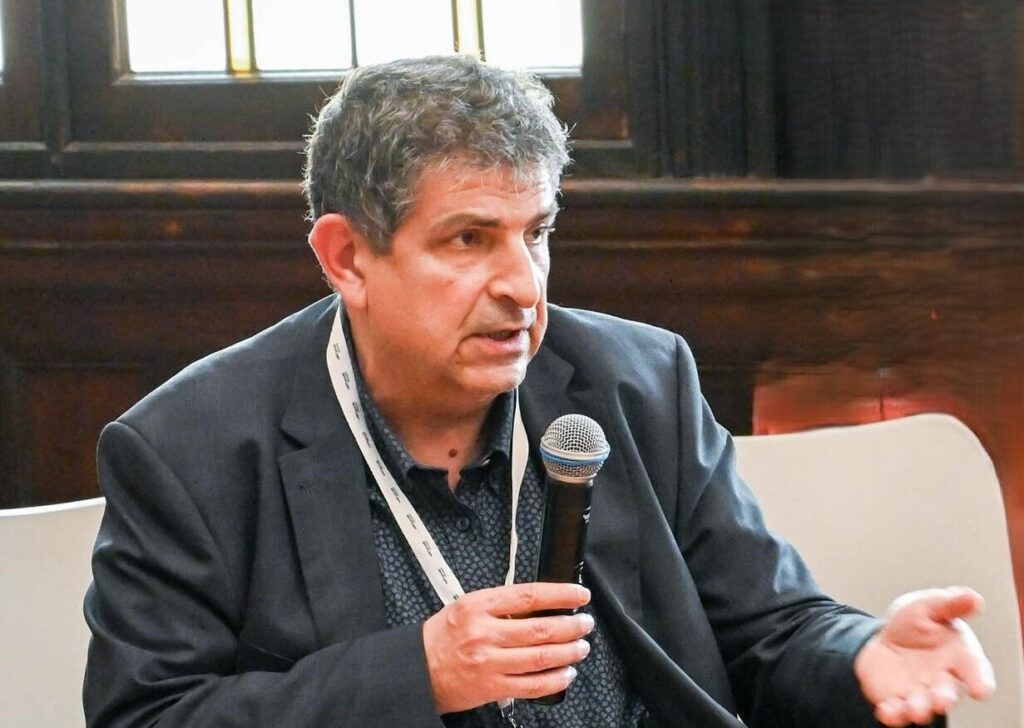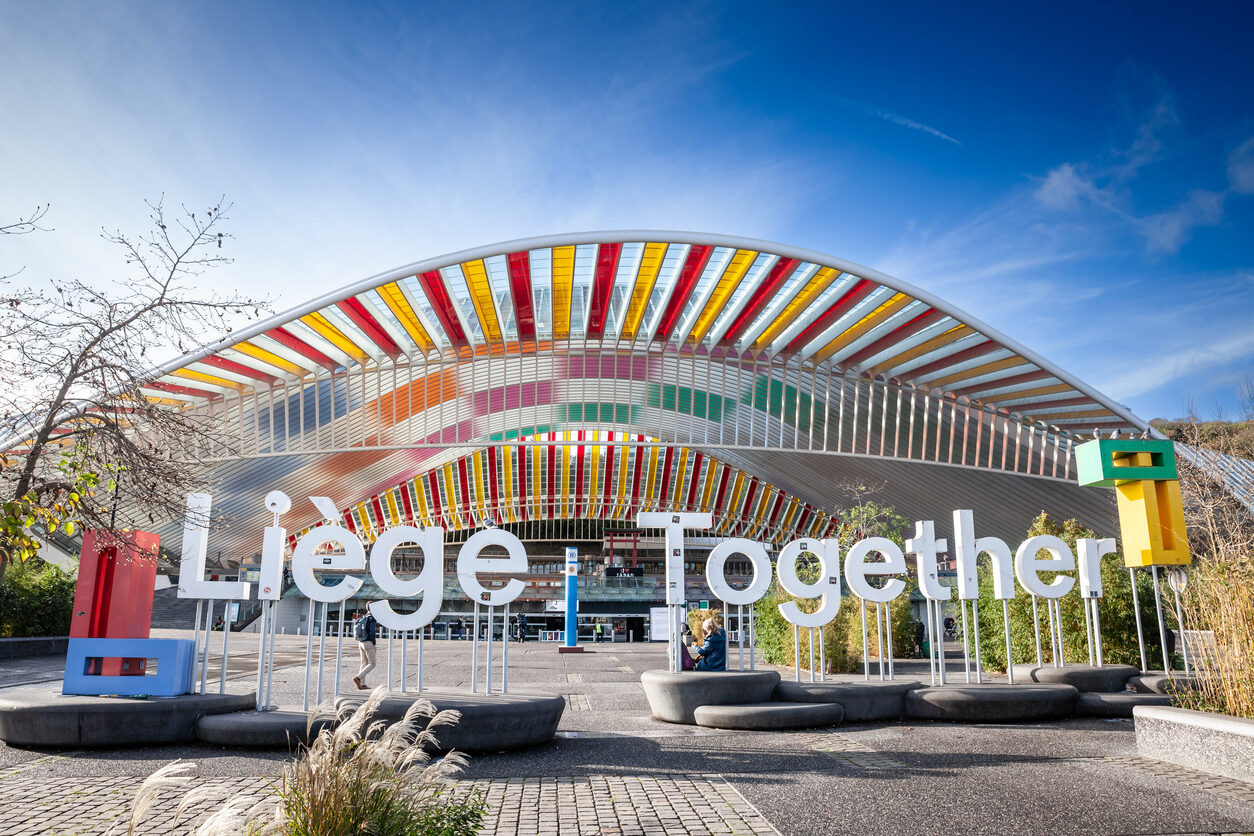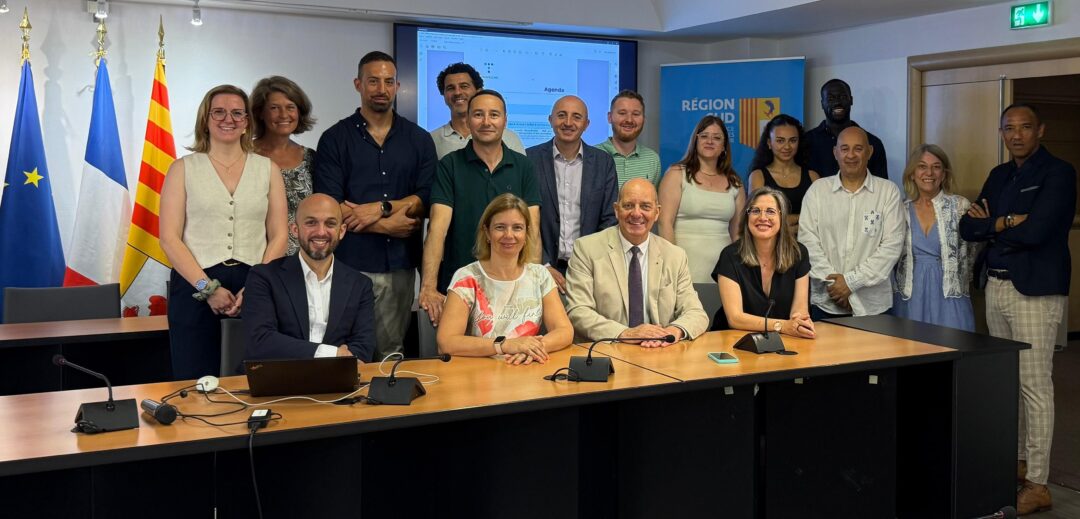Interview with Manuel Comeron, Head of Crime Prevention for the City of Liège
When did the city of Liège first encounter the problem of violent radicalism?
Manuel Comeron: The phenomenon emerged gradually, but it was mainly from 2013 onwards that it gained momentum. In Liège, as in other European cities, we were confronted with young people leaving for combat zones, particularly in Syria, where the Islamic State (IS) had been formed. During those years, around 700 young people with an average age of 23 left Belgium to join IS in Syria. The attacks on the Bataclan in Paris in November 2015 and in Brussels in March 2016 marked a turning point: we were faced with organised terrorism.

What strategy did the City of Liège put in place at the time?
We didn’t act on our own: it was first and foremost a national response, with a parallel European movement beginning to take shape. From 2014 onwards, Efus organised meetings as part of the LIAISE (Local Institutions Against Violent Extremism) project with the aim of enabling European cities to exchange views directly on an issue that concerned them all. In Liège, we began diagnostic work in 2013, involving the police, social actors and the university, and very quickly initiated local consultation led by the city. The attacks across Europe accelerated things: it was urgent to work with all local actors in a cross-cutting manner, a method that had been widely tested by Efus. This led to the creation of the Local Integral Security Unit (CSIL), led by the mayor, which enabled social prevention actions to be launched very quickly. Since 2018, this has been a requirement for all Belgian municipalities.
“Many of the actions carried out in Liège are directly inspired by European experiences, such as those in Madrid and L’Hospitalet (Spain), Berlin and Augsburg (Germany), Paris and Strasbourg (France), Brussels and Mechelen (Belgium) and London (United Kingdom) with the Prevent programme.”
What role did Efus play in this process?
It played a decisive role. Starting in 2014, with the LIAISE project, we were able to exchange ideas with other European cities. For the first time, social and educational actors were involved alongside the police in the fight against terrorism, at a time when we were facing a major challenge. Efus enabled us to benefit from high-level training, share practices and avoid isolation. Many of the actions carried out in Liège are directly inspired by European experiences, such as those in Madrid and L’Hospitalet (Spain), Berlin and Augsburg (Germany), Paris and Strasbourg (France), Brussels and Mechelen (Belgium) and London (United Kingdom) with the British Prevent programme.
Islamist extremism seems to have receded today, but other forms of violent radicalism have emerged. How do you assess the current situation?
The climate is calmer than it was ten years ago, with a relative decrease in attacks, but the phenomenon of radicalisation leading to violence is still prevalent, as many attacks are foiled by the security services. We are facing a double threat: on the one hand, violent Islamism, which has not disappeared at all, as attacks continue and the ideology is spreading at an alarming rate; and on the other hand, the rise of right-wing extremism, with small groups in Germany, France and England ready for action. On the ground, in terms of extremist rhetoric or radical religious behaviour, we continue to detect signs in schools and certain neighbourhoods, and we are working with the education and youth sectors to prevent the academic and social exclusion that can lead to radicalisation.
What challenges remain?
The main challenge is the polarisation of society. International crises, Covid, online violence – all of these reinforce divisions within the population. We must reaffirm democratic values and maintain spaces for dialogue, while protecting elected officials and institutions from verbal and physical violence. Another challenge is mental health: more and more cases of radicalisation reveal psychological fragility, even if this does not explain everything.
What can we learn from the experience in Liège?
That the prevention of violent radicalism is not limited to security. It is a cross-cutting, cultural, educational and social endeavour. Cities cannot act alone: they must cooperate with each other and with civil society. Above all, they must receive structural and financial support from the national level. In Liège, we believe that strengthening social cohesion and fostering a positive sense of local belonging is also a form of protection against extremism. This is entirely in line with the Efus approach.
Cover picture: The entrance to Liège’s main train station – ©iStock – BalkansCat
The city of Liège’s prevention strategy
The Liège unit for the prevention of violent radicalisation, in collaboration with the Ministry of the Interior, is active in the following areas:
- Providing front-line information and advice to citizens and referring them to specialist services.
- Awareness-raising or thematic training for professionals working in education, social services and intercultural fields.
- Coordination of intersectoral prevention consultation (CSIL) and development of a local action strategy.
- Organisation of educational activities in relation to youth, open environment support, culture, education and integration initiatives.
- Development of psychosocial support programmes in cooperation with the University of Liège.
- Liaison with national (Ministry of the Interior) and regional authorities and participation in international exchanges, notably via Efus and the Strong Cities Network.
Manuel Comeron: We are active across the entire spectrum of prevention (primary, secondary and tertiary). For example, in primary prevention, we have promoted a play (Nadia) performed in schools to thousands of teenagers, organised film screenings followed by debates, and more recently created a walking tour of the city entitled Democracy, Tolerance and Freedoms, which takes visitors to places or monuments symbolic of these values.
In secondary prevention, we participated in the Efus Local Voices project (local communication strategies to prevent extremism, 2017-2018), which enabled young residents to create a communication campaign against extremist discourse with the production of an artistic video clip (music, dance, writing) widely disseminated on social networks.
Finally, in tertiary prevention, as part of the operational CSIL-R, we provide individualised social support for people who are already radicalised, with centres for social action, professional integration, intercultural integration and mental health, as well as the support of the university.
> Efus has published several books resulting from EU-funded projects on the prevention of violent radicalisation and polarisation:
- LOUD – When local authorities and young people from nine European cities mobilise against intolerance and extremism (Efus, 2021)
- BRIDGE – Understanding and addressing polarisation at the local level (Efus, 2021)
- PRACTICIES – Partnership Against Violent Radicalisation in Cities, European project (Efus, 2020)
- PREPARE – Preventing Radicalisation in Probation and Release (Efus, 2019)
- Prevention of violent radicalisation – Methodological guide for the development of a local strategy (Efus, 2017)
- Preventing and Fighting Radicalisation at the Local Level (Efus, 2016)
- Cities against Terrorism (Efus, 2007)
> More on Efus work on the prevention of violent radicalisation and polarisation





